This post is part of a social shopper marketing insight campaign with Pollinate Media Group® and Food Science Matters, but all my opinions are my own. #pmedia #foodsciencematters http://my-disclosur.es/OBsstV
Having a food science major in our family has been an experience. Whenever he is home from college he shares facts to either gross us out —“The average American eats one to two pounds of insects a year without knowing it” – to dispelling food science myths with the facts— -“Carrageenan food products are safe for human consumption.” With so much misinformation out there these days, it’s easy to feel overwhelmed and unsure about what to eat. Here are some of the most common food science myths and why you don’t need to worry.
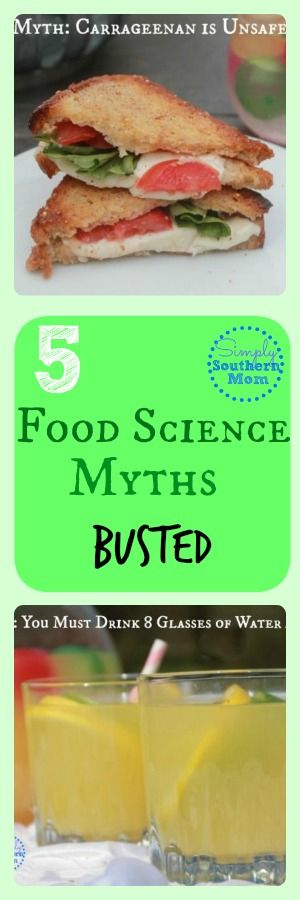
1) Drink 8 Glasses of Water a Day.
Drinking water is important; it helps keep you stay hydrated and keeps the body functioning properly. But most foods and other beverages also contain water, which can count toward the total. Water intake should also depend on your activity level. If you’re very active and sweating, you’ll need to drink enough to replace lost fluids.
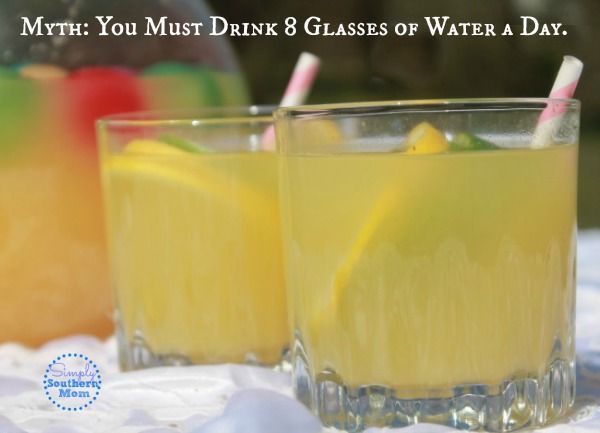
2) Fat- Free and Low- Fat Foods Are Healthier for You.
You’ve started your diet and ditched all the unhealthy food in your kitchen and replaced it with fat- free and low- fat foods. Sounds great, right? But fat- free and low- fat foods could be hiding other ingredients, like flour, sugar or thickeners, that can add calories. Plus, if you eat the product and it doesn’t satisfy your cravings, you could be tempted to eat more, adding extra calories.
Tip: Eat a few bites of the food you’re craving.
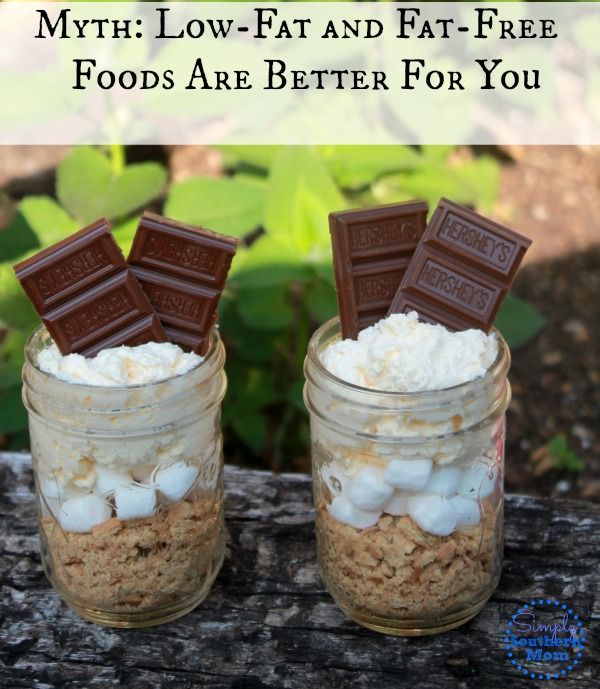
3) You Must Eat Bananas to Get Potassium.
Potassium is an electrolyte that helps regulate fluid in our bodies. Lowered levels, as we have learned through experience, can lead to problems with blood pressure and kidneys. Bananas were recommended by friends as the “only way to get potassium from food.” Even if your doctor recommends a supplement, you can still find potassium in beans, dark leafy greens, potatoes, squash, yogurt, fish, avocados, and mushrooms.
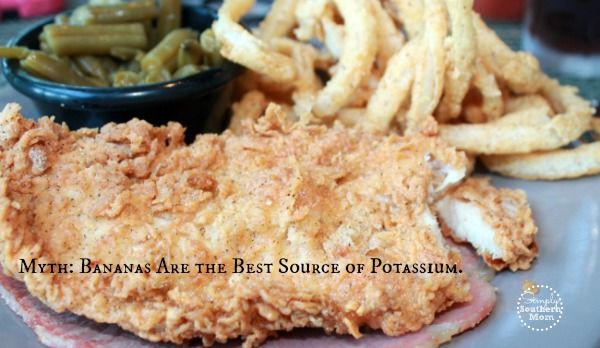
4) You Must Eat Red Meat to Get Protein.
Protein plays an important role in our bodies. Found in muscle, skin and even our hair, we need protein to build and repair tissue. It’s also recommended to eat if you have anemia. But what if you don’t like meat or you’re a vegetarian? You can still find it in fish, cheese, tofu, beans, lentils, yogurt, eggs, nuts, and seeds.
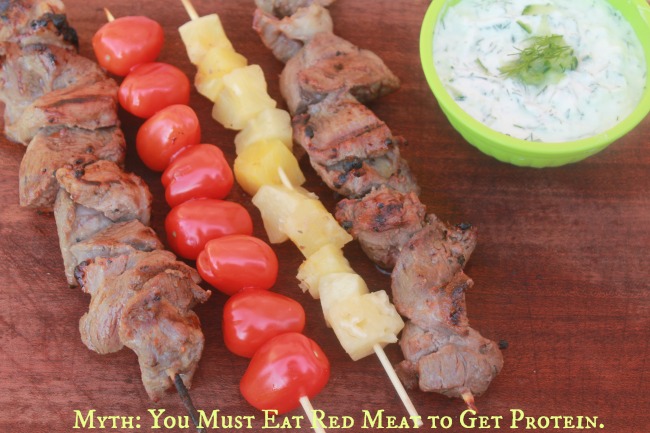
5.) Carrageenan Is Unhealthy.
It’s easy to see ingredients and wonder why they’re added to our food. Carrageenan is a soluble fiber derived from red seaweed and is a natural ingredient used as a stabilizer in many foods and other products. There’s carrageenan in common foods we eat every day, like yogurt, cheese and almond milk. There’s carrageenan in makeup, carrageenan in toothpaste, carrageenan in pet food Want to know more? You can find a carrageenan food list at Food Science Matters. Carrageenan safety is unfairly questioned, but according to the World Health Organization, it’s in the best possible category for a food additive.
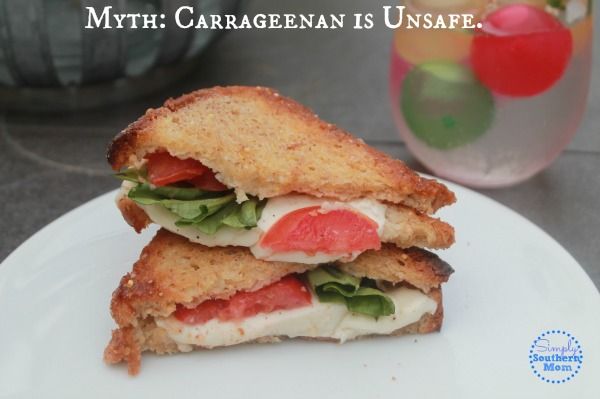
What are some of the food topics that concern you?
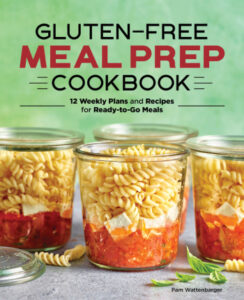
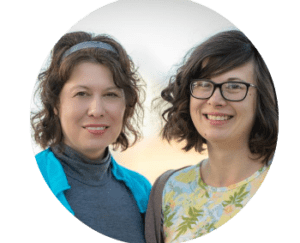
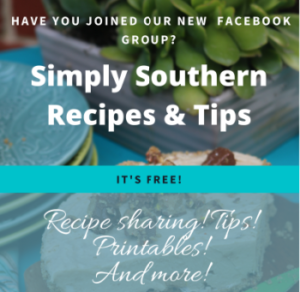
I didn’t know these myths had been science busted, I heard the same about drinking 8 cups of water a day
I didn’t know that you don’t need to drink 8 glasses of water a day. A really nice fact to know that water intake depends on my activity
Yes, love this! It’s all about research. I’ve found a lot of what we hear isn’t always true.
Fat free foods don’t taste good. I’m glad that one is a myth.
I’m really trying to drink 8 glasses of water per day! It’s a struggle, but I’m trying!!
I had no idea I could get potassium in fish and in leafy greens. That is great to know.
I stopped buying fat free years ago. It’s gross and is filled with bad ingredients.
I agree with everything but I don’t think the 8 glasses a day thing is meant to be taken literally. The point is true, other food already have the “water” part in them but it doesn’t necessarily mean you have to drink them. It’s a great post in any case, worth sharing!
In an effort to eat cleaner, I stopped buying fat-free products. The list of ingredients can be scary. There are some brands I trust, but definitely not all.
This is such an interesting read – good to hear about what really is the truth about this – especially the water, I’ve often wondered if water in other forms counts. x
This is a great topic and great myth busters on these foods. The information on the carrageenan is stuff I didn’t know about. I know about the water being in the foods we eat and about the low fat or fat free can be worse to on us. Thanks for sharing the information.
This is a sure cool idea for a discussion, never thought about food science myths, thanks for sharing!
The fat-free/low-fat food myth is definitely a big one. Our body needs some form of fat to function!
I had no idea potassium is in all those foods! I don’t eat bananas often, but I think I have it covered with yogurt, dark leafy greens and beans. Interesting information.
I drink more than 8 glasses of water a day. I workout daily and don’t drink much else really. I can tell when I don’t drink enough water and I think its important you listen to your body.
Heard that carrageenan is not safe but thanks to your post, now I know that isn’t true! I love yogurts, especially the greek style yogurt!
I’ve known that bananas are rich in potassium as my mom told me about it but I never thought of what you have shared!
I am not quite sure about Carrageenan. I’ve seen this ingredient on dairy products, organic or non organic
I’ve always know that all fat-free or low fat foods aren’t that good for you. I eat what I like and I don’t usually bother about ingredients most of the time since I do a lot of fresh stuff. I’m not a fan of can/tinned/processed foods.
I love number 2. I never go for the fat free or low fat foods. Usually they are higher in something making them about the same as regular foods.
Wow, thanks for sharing this. I didn’t know a lot of these! Especially about the water!
I never bought the 8 glasses of water myth and I eat any of the low-fat, no-fat alternatives if I can help it. I prefer not to eat food that has been tampered with.
It’s so interesting that there are so many ‘facts’ on both sides of these issues. It’s hard to know what to believe.
I knew I need to drink more water. I drink about 1 cup a day. I would never make it to 8, so i’m glad Im not TOO far behind. lol
What an informative article! I never counted the water in other things towards my water goal.
I didn’t even realize that the water in food counted towards your total water intake for the day. I assumed that was with your food totals. Who knew?
I can barely drink 3 full big glasses of water a day I doubt I’d ever be able to do 8. I never believed that one really!
This is really interesting. I’m not a huge fan of red meat so I have to get my protein from other sources most of the time.
What an educational post! I didn’t realize that proteins don’t have to come from meat….I’ve always thought that! Thanks for the awesome tips!
It is so hard to know what is true when there are so many different articles with different opinions. I tend to just try to eat as much healthy fresh food as possible and everything else in moderation.
These are super interesting myth busters, glad you shared them. I am now thinking how I had no clue these were myths before!
This is great information. Meat may be the first thing we think of for protein, but there are so many other choices for protein.
This is a great post. I need to start drinking more water every day. I am allergic to bananas so I try to get my potassium from other foods.
It’s amazing how many myths there are about food! I agree that 8 cups of water per day is unnecessary when you’re also drinking other beverages and eating water-rich foods (like soup, stews, watermelon, etc.)
I’ve never bought into carrageenan being bad for me. It’s totally natural!
This was an interesting read! I’m trying to learn a lot about nutrition so the more I can read the better. I don’t go for the fat free or low calorie stuff, my rule is if it’s been messed with it’s not the way God intended it. So what I usually do is eat small portions of what I crave maybe a couple bites and then eat something I know that is definitely healthy for me.
I count every calorie that goes into my mouth. Right now I am on a 1200 calorie a day diet.
I am definitely going to have to reassess my water intake. Maybe I am drinking more than I need to be 🙂